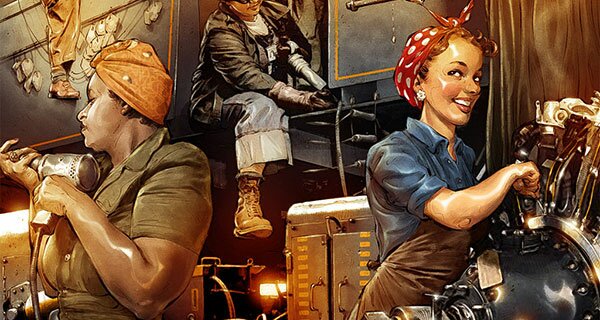What is family… Really?
The paradox is, that the answer to that question, in all self-honesty, for most people, is a shock to discover, yet at the same time so univocally familiar.
The word, originating from c.1.400 is said to mean “servants of a household” and was only later giving it’s meaning of “connected by blood”. We shall here discuss exactly how accurate that first definition really is.
In looking at the root of the word, as the original meaning which we’re living into manifestation, often without knowing it, it is evident that what that is portrayed through TV (smoke) screens, is but a layer of varnish covering up the cracked foundation that is the family system and construct in this world.
Natalism is the belief that human reproduction is the basis for individual existence and thus glorifies birth (latin: natalis) and parenthood. In this article we shall discuss how the construct of the family system and the role it plays in this world, is based on a fundamentalistic and natalistic belief bordering on an ideological dictatorship that has everyone on earth spellbound through its propaganda machinery.
“Family is all that matters”
“Blood is thicker than water”
“Family must stick together”
“Family first”
But it is not so much about family in itself, as it is about how the understanding of what family really is, and more importantly what family DOES and why.
In 1966 Peter Berger and Thomas Luckmann wrote a book called”The Social Construction of Reality”. This book has become a classic in the field of sociology for its description of how we create the reality we perceive, experience and exist in, through social construction in groups, intuitions and families. One of the points they’ve been famous for describing is the process of socialization, as how the child becomes ‘a person’ that is integrated into the culture and society one is a part of. It is this ‘how’ that is so fascinating and which reveals not only the construct behind family-structures but also behind school systems, knowledge systems, cultures and the entity of society as a whole.
Berger and Luckmann describes with exact precision the social constructs that influence how a child is integrated into the family, culture and society it is born into, and how it comes to accept itself as an integrated part of its world.
“The central concept of The Social Construction of Reality is that persons and groups interacting in a social system form, over time, concepts or mental representations of each other’s actions, and that these concepts eventually become habituated into reciprocal roles played by the actors in relation to each other. When these roles are made available to other members of society to enter into and play out, the reciprocal interactions are said to be institutionalised. In the process of this institutionalisation, meaning is embedded in society. Knowledge and people’s conception (and belief) of what reality is becomes embedded in the institutional fabric of society. Social reality is therefore said to be socially constructed.” – Summary from Wikipedia
When I first read the book, I was surprised that such a book has been written without having created at least ripples in the veil that is our co-existence – because the descriptions are so spot on and so directly describing to the very last detail exactly how the process of social programming takes place. I simply could not understand how someone could read this book from a “safe scientific distance” and in a sense not place the writing into perspective, where also we ourselves, have been equally programmed into a certain mold and pattern.
So either Berger and Luckmann’s description of the programming is not outrageous or penetrating enough to influence the larger society to actually look at itself and consider whether they way we exist requires to be changed OR the person reading is so engulfed in the programming themselves, that they can in fact only read from a “safe scientific distance”. That is not only ironic, but also absurd as we’re so clearly presented with the exact formula into how we’re continuously and monotonously programming ourselves to re-create the same social constructs and patterns.
Ironically Berger and Luckmann write:
“The history of legitimating theories is always part of the history of society as a whole. No ‘history of ideas’ take place in isolation from the blood and sweat of general history. But we must once again stress that this does not mean that these theories are nothing but reflections of ‘underlying’ institutional processes; the relationship between ‘ideas’ and their sustaining social processes is always a dialectical one. It is correct to say that theories are concocted in order to legitimate already existing social institutions. But it also happens that social institutions are changed in order to bring them into conformity with already existing theories, that is, to make them more ‘legitimate’. The experts in legitimation may operate as theoretical justifiers of the status quo; they may also appear as revolutionary ideologists. Definitions of reality have self-fulfilling potency.” (pg. 145)
So theories about society and the explicit programming of society goes hand in hand and as such is Berger and Luckmann’s theory more ‘meta’ or ‘behind the curtain’ as it describes the rules with which the ‘game’ of society is being ‘played’ on.
Let’s have a look at the detail with which these rules of construction are described:
Berger and Luckmann describe how the child is integrated and will integrate itself into society and develop an identity based on this ‘socialization’ into the system. They describe how the child is born into a situation with ‘significant others’, who most often will be immediate family members who’re in charge of introducing them to the world.
So the child has no choice – it’s total existence is dependent on these people and it is upon this basis that the premises of socialization is founded. They decide who the child is gonna be and how the child is gonna see the world around it, what it will prefer, what it will desire and fear and they do so simply according to their own programming either explicitly or implicitly.
This is where family exists as a specifically influential ‘unit’ or institution, because the child is not only introduced into a specific larger culture, but also according to a specific interpretation of that culture. Two of the most important aspects of this process, is according to Berger and Luckmann the programming of language and the emotional relationship between caretaker and child.
“The child identifies with the significant others in a variety of emotional ways. Whatever they may be, internalization occurs only as identification occurs. The child takes on the significant others roles and attitudes, that is, internalizes them and makes them his own. And by this identification with significant others the child becomes capable of identifying himself, of acquiring a subjectively coherent and plausible identity. In other words, the self is a reflected entity, reflecting the attitudes first taken on by significant others towards it, the individual becomes what he is addressed as by as his significant others. “(pg. 152)
So it is no wonder we keep recreating the same fucked up world with the same fucked up families, wherein to we’re born, never being able to escape “the sins of the fathers”, be that genetically or socially through this stream lined process of indoctrination. It also explains why it for so many people seems almost impossible to step out of the family role, because as we’re socialized into existence, our entire life is dependent on us fitting in with these people, of us mimicking them as well as eventually taken on their habits and preferences as our own.
“The child learns that he IS what he is called.” (pg. 152)
What is also interesting is that no alternative is provided; this is simply how it works. According to Berger and Luckmann, the child does however also go through a process of secondary socialization in which it is integrated in the world around it. This explains according to Berger and Luckmann the, often contradicting, preferences a person can experience where they on one hand believes it is bad to steal based on values Impulsed into them via their family and on the other hand place value into being accepted by a group of friends that steal. The difference however is that the child within the primary socialization perceives the significant others as ‘THE world’, where they when integrating with school mates and co-workers, are aware of these being but ‘A PART OF’ a greater world.
What is created on the basis of this system is not only generational child abuse in which singular people have enormous power to shape the future, but also a trapped and closed system that does not end, because it’s premise is based on the re-production of itself without validated reason or direction. We simply keep having babies generation after generations, with only the biologically engineered triggers and the socially manufactured propaganda as directive principles.
And within doing so, we’re constantly recreating a flawed world with flawed human beings that pretend they got everything under control. No one can even remember who started it , let alone how to stop, so we try – generation after generation, to redeem the damages and make the perfect match, the perfect child – but all that happens is that we make more and more of the same mess.
So we exist, as Berger and Luckmann has described, as mere reflections Impulsing that which will ensure our survival in the world, that which responds in a way to us that is filled with the least conflict and battle. And so we suppress, mold, lie, deceive, manipulate, try, compromise – with whatever means possible to get by, as our parents have done before us and theirs before them.
As children, we’re thus entirely submitted to the quirks and ways of the people who’ve brought us into the world and even the most successful and effective families are thus abusing their children by simply participating in continuous and meticulously patterned brain wash – and the worst part? We don’t know any better, so we do the same to our children, as has been done to us.
Thus we’re able to see the programming and exactly how it works – but changing it, has never until now been possible. The seeing, understanding and exposing of these social systems is what we do at Desteni. We do it through the basic understanding that we’re all equally responsible for the world and the reality we’ve created – we’ve created it ourselves and thus it is by changing ourselves, as a whole, that we can change what is here, system by system.
The family system is the engine that drives the reproduction of the systems of inequality that we’ve accepted as the foundation for our existence on this Earth.
It is within the families and as the families that we justify who we’ve become as that inequality – when we refuse to share or where we feel forced to steal or why we work until we bleed. It is where everything that is wrong with this world is justified as legitimate.
Family is like the clue that keeps the world system of inequality and abuse intact, with the deception of the family as the center, the nucleus of the world, bound by emotional strings and words in our childhood that holds us forever indebted.
So many people feel trapped in their families, others trap themselves and others again have no choice but to rely on family – a condition that only supports the notion of family being the foundation of our existence on this earth and the key to our survival.
But we forget that as this earth, as a whole, we all combine and compile into a nucleus one could call a family – connected by the blood that is this earth, consisting of the exact same molecules and atoms as the life we see around us – yet we treat this family as an intruder in our house instead of embracing all of it, life in it’s entirety. And ironically, from this perspective, it is true that we can only rely on family to survive, that family in deed do come first, because without us stepping up to the plate of taking care of our family, the plants, the earth, the animals, each other , who will we be?
Are we merely ‘servants’ of the ‘household’ that is this system of abusive and inequality?
Created as and by ourselves in ways most of us don’t even remember because we’ve compartmentalized ourselves into separate units, in the believe that only as such could we survive, by hiding all parts of ourselves, from ourselves, scattered throughout the earth – brought together in artificial units of ‘support’ called ‘family’ – yet always and only supporting the system of separation to re-produce itself into smaller and smaller pieces.
If that is what family is – then it is time we get rid of it – and to come together in the family that is this earth, as all of us, to re-define family into the unconditional support system it was supposed to be, bringing ourselves together and embracing what is here as a whole in mutual support and care.
Cite This Article
Anna Brix Thomsen (2012). Family is Fascism. The Socjourn. [https://sociology.org/family-is-fascism/]

Lila, the Revolutionary
By: William T. HathawayLila, the Revolutionary is a fable for adults about an eight-year-old girl—smart, charming, and tough as can be—who creates a world revolution for social justice. No one ever told her she couldn't end poverty and inequality, so she doesn't doubt that she can Just Do It! Starting with the Nike shoe factory where she works. Like the boy in "The Emperor's New Clothes," Lila can see the reality that adults are blind to. And she's not shy about pointing it out. Her story is a call to action: If Lila can do it, so can we. She convinces us that Yes, a better world is possible, and we're the ones to create it.
[ Kindle | Amazon.com | Book Finder ]
 The Socjourn A New Media Journal of Sociology and Society
The Socjourn A New Media Journal of Sociology and Society



I, too, believe we’re all responsible for the mess that we now find ourselves in, and, without a doubt, it’s the obligation of each and every single one of us to do something about it. However, I feel as if those whom find themselves to be in a position of power, or in the spotlight, so to speak, carry a larger responsibility than the rest of us. I’m not trying to ship off any responsibility of my own, but if your voice can be heard by millions of people at the snap of two fingers, you should be using it effectively to fulfill this sacred duty. I’m irked by the fact that, there’s too many powerful people who’ve forgotten just where they came from; there’s too many powerful people who’ve forgotten their true identity, their basic human nature and their inherent values. Sure, our values are manipulated by the monetary system, but have they no heart and soul? It’s almost like, as one becomes financially secure, empathy ceases to exist. And if they’re not lacking a heart and soul, they’re definitely lacking brains. Again, I wish I were Oprah rich or Jimmy Kimmel credible.
Though there is no reason why celebrities should be expected to take more responsibility. After all, why are they in the position they are in?
Because they serve as entertainment and a distraction from what is actually HERE on earth, so that everyone is occupied in their minds and TV-sets instead of actually SEEING what is here and make the directive decision to change.
Thanks for sharing.
The Hollywood distraction – http://blog.michaelsharp.org/2012/02/28/the-oscars-angelina-jolie-billy-crystal-and-the-chinks-in-the-wall/
When I’d mentioned “people in the spotlight,” as suggestive as that comment may be, I’m not referring to specifically movie stars, but politicians, musicians, CEOs, the famous for no reason, artists, indeed anybody who can reach a substantial number of ears, and the list goes on forever. And of course, I would never expect them to take on more responsibility in that sense, because they rarely ever do; that would be a one-way ticket to fantasy land. Although, again, if you can be heard by thousands of people at the snap of two fingers, I feel as if you carry a larger responsibility than the rest of us. By the way, great collection of articles you’ve written. Kudos to you!